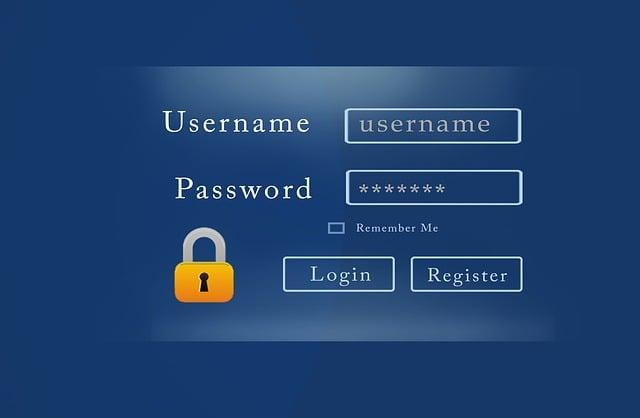Table of Contents
- Understanding the Value of Custom Domains for Your Brand
- Key Strategies for Marketing and Selling Custom Domains
- Navigating Domain Registration: Tips for Seamless Transactions
- Maximizing Profitability: Pricing your Custom Domains Effectively
- Building Long-Term Relationships with Domain Buyers
- Q&A
- In Retrospect


Understanding the Value of Custom Domains for Your Brand
In the digital marketplace, simplicity and memorability are key factors that contribute to a brand’s success. A custom domain does more than provide a web address; it serves as a reflection of your brand identity. When potential customers see a professional domain, they are more likely to view your brand as credible and trustworthy. This perception can significantly impact their decision-making process, leading to higher conversion rates. A custom domain distinguishes your business from competitors and creates an online presence that resonates with your target audience.
Furthermore, a tailored domain allows for enhanced branding opportunities. A uniquely crafted domain name can encapsulate your business’s mission or values, making it easier for clients to remember and recommend your services. Consider the benefits:
- Brand Consistency: Maintain uniformity across your marketing materials.
- SEO Advantages: A relevant domain name can improve your search rankings.
- Flexibility for Growth: As your brand evolves, your domain can adapt to reflect new products or services.
To illustrate the benefits of investing in a custom domain, here’s a simple comparison of different types of domains:
| Domain Type | Advantages | Examples |
|---|---|---|
| Custom Domain | High credibility, tailored branding | www.yourbrand.com |
| Free Domain | No initial costs, user-friendly | yourbrand.freeweb.com |
| Subdomain | Quick setup, easy management | yourbrand.shopify.com |
Key Strategies for Marketing and Selling Custom Domains
To effectively market and sell custom domains, understanding your target audience is essential. Identifying the specific needs and pain points of potential buyers can shape your approach. Focus on creating tailored messaging that highlights the uniqueness of your offered domains. Consider employing methods such as:
- Segmentation: Divide your audience into smaller groups based on criteria like industry, business size, or niche interests.
- Value Proposition: Clearly communicate how owning a custom domain can benefit their brand identity and online presence.
- Customer Testimonials: Leverage past success stories to build trust and authenticity in your marketing campaigns.
Another vital strategy involves leveraging various online channels to enhance visibility and reach. A well-rounded approach ensures you capture potential buyers wherever they are looking. Consider these essential channels:
- Social Media Advertising: Utilize platforms like Facebook, Instagram, and LinkedIn to target ads based on user interests and behaviors.
- Search Engine Optimization (SEO): Optimize your website to rank higher in search results for keywords related to custom domains, ensuring potential buyers can easily find you.
- Email Marketing: Build a list of interested prospects and regularly engage them with valuable content and exclusive offers on your domains.
Lastly, crafting compelling offers can significantly impact your sales. Offering limited-time discounts or bundle deals provides an incentive for prospective customers to take immediate action. Implement the following tactics:
| Offer Type | Description |
|---|---|
| Seasonal Promotions | Time-sensitive discounts to encourage urgency. |
| Referral Bonuses | Encourage existing customers to refer new clients with rewards. |
| Bundle Packages | Group services or domains for a lower total price. |


Navigating Domain Registration: Tips for Seamless Transactions
Choosing the right domain is essential for your online presence, especially when selling custom domains. Begin by brainstorming names that are not only catchy but also convey the essence of your brand. Short, memorable names are more impactful, and including relevant keywords can improve your visibility in search engines. Aim for a name that resonates with your target audience while also being easy to spell and pronounce.
Once you’ve settled on a few potential domain names, it’s time to check their availability. Utilize domain registration sites to search for your desired names and see if they are currently registered. If your top choice is taken, consider alternatives by:
- Using different domain extensions (e.g., .com, .net, .co)
- Incorporating hyphens or additional words
- Exploring synonyms or variations of your original idea
After you’ve identified an available domain, the next step is securing it smoothly. When registering, pay close attention to the terms and conditions. Verify the renewal rates and consider opting for long-term registration to avoid the hassle of frequent renewals. Additionally, think about privacy protection features to safeguard your personal information from public view. Below is a table outlining some essential factors to consider when registering your domain:
| Factor | Description |
|---|---|
| Renewal Rate | Cost to maintain ownership after the initial period |
| Registrar Reputation | Look for well-reviewed registrars for reliability |
| Privacy Options | Consider add-ons that protect your personal details |


Maximizing Profitability: Pricing your Custom Domains Effectively
When it comes to selling custom domains, establishing the right pricing strategy is crucial for maximizing profitability. Begin by understanding your target audience and their willingness to pay. Conduct thorough market research to identify competitive pricing while considering factors like domain length, keyword relevance, and industry trends. By aligning your prices with what customers perceive as valuable, you can create a strong position in the market.
Consider adopting a tiered pricing model to cater to diverse customer needs. Offering domain packages with varying features can attract different segments, from businesses seeking premium domains to personal users looking for budget-friendly options. Here are some factors to include when determining your pricing structure:
- Domain popularity: The more sought-after the domain, the higher the price.
- Length and memorability: Short, catchy domains can command a premium.
- Brandability: Domains that fit well with established brands can justify higher costs.
Additionally, consider the potential for upselling complementary services to enhance your revenue stream. Offering value-added services such as:
- Hosting packages
- SSL certificates
- SEO optimization tools
can create a more comprehensive offering, making it easier for customers to say yes to higher-priced packages. Ultimately, the key lies in clearly communicating the benefits and ROI of your offerings, ensuring customers perceive the worth beyond just a domain name.


Building Long-Term Relationships with Domain Buyers
When it comes to engaging with domain buyers, the focus should be on cultivating a relationship that goes beyond a single transaction. Establishing trust and providing value is crucial for turning initial interactions into long-lasting partnerships. Consider hosting educational webinars or information sessions about the domain market, which can effectively showcase your expertise. This not only puts you at the forefront of buyers’ minds but also demonstrates your commitment to helping them succeed.Providing exceptional customer service is another cornerstone of fostering enduring relationships. Always aim to be responsive, addressing queries and concerns promptly. Buyers appreciate transparency and clear communication throughout the buying process. Here are some effective strategies:- Offer personalized recommendations based on the buyer’s industry and needs.
- Follow up after a purchase to ensure their satisfaction.
- Provide resources, such as SEO tips and domain usage cases, to help them maximize their investment.
| Incentive Type | Description |
|---|---|
| Discounts | Offer X% off on their next domain purchase. |
| Exclusive Access | Grant priority access to new domain listings. |
| Loyalty Points | Earn points with every purchase that can be redeemed later. |
Q&A
Q&A on Selling Custom Domains: Everything You Need to Know
Q1: What is a custom domain? A1: A custom domain is a unique web address that you purchase for your website, allowing you to establish a distinct online identity. Instead of using a generic domain name (e.g., yourbusiness.wordpress.com), a custom domain looks more professional, such as yourbusiness.com. It enhances credibility and helps with branding.Q2: Why should I consider selling custom domains? A2: Selling custom domains can be a lucrative venture. As more businesses and individuals seek to create their online presence, the demand for unique and memorable domain names grows. Whether you’re a web developer, entrepreneur, or part of a digital marketing team, selling custom domains offers an opportunity to capitalize on that demand and generate additional income.
Q3: How can I acquire domains to sell? A3: There are several ways to acquire domains for resale. You can register new domains through registrars like GoDaddy or Namecheap, purchase expired or expiring domains from auction sites like SnapNames or Flippa, or even buy premium domains from other owners. It’s important to research and select domains that have branding potential and good market value.
Q4: What makes a custom domain valuable? A4: The value of a custom domain can be influenced by various factors, including length, brandability, keyword relevance, and extension (.com, .net, etc.). Short, memorable names that feature common keywords are typically more sought after. Additionally, a domain with existing website traffic or established backlinks can significantly increase its market value.
Q5: How do I market my custom domains effectively? A5: Marketing custom domains requires a strategic approach. Start by building a user-friendly website that showcases your domain inventory. Utilize social media platforms to promote your domains and engage with potential buyers. Consider leveraging domain marketplaces like Sedo or Afternic, which specialize in domain sales. Additionally, SEO best practices can help draw organic traffic to your listings.
Q6: What are the legal considerations when selling domains? A6: When selling custom domains, it’s vital to understand trademark laws and ensure that your domain names don’t infringe on existing trademarks. Conduct thorough research to confirm that your domain is free of legal disputes. It may also be wise to consult with a legal professional to navigate the complexities of domain ownership and selling.
Q7: What payment methods should I offer? A7: Offering multiple payment options can enhance customer convenience and trust. Consider accepting credit/debit cards, PayPal, and popular cryptocurrency payments. Ensure that your website has secure payment gateways to protect both you and your customers during transactions.
Q8: How do I transfer ownership of a custom domain after a sale? A8: After successfully selling a custom domain, the transfer process typically involves unlocking the domain through your registrar’s dashboard and providing the buyer with an authorization code. They will then initiate the transfer with their registrar. Familiarize yourself with the specific transfer policies of your registrar to ensure a smooth transaction.
Q9: What tips do you have for a successful domain sales venture? A9: Start by building a diverse portfolio of quality domains. Understand your target market and tailor your offerings accordingly. Stay informed about industry trends and potential future demands. always maintain clear and open communication with potential buyers to foster trust and encourage sales. Engaging in domain community forums can also provide valuable insights and networking opportunities.
By delving into the world of custom domains, you not only expand your knowledge but also unlock a myriad of opportunities for entrepreneurship and creative expression online. Whether buying or selling, understanding this landscape is key to leveraging the full potential of digital assets.

